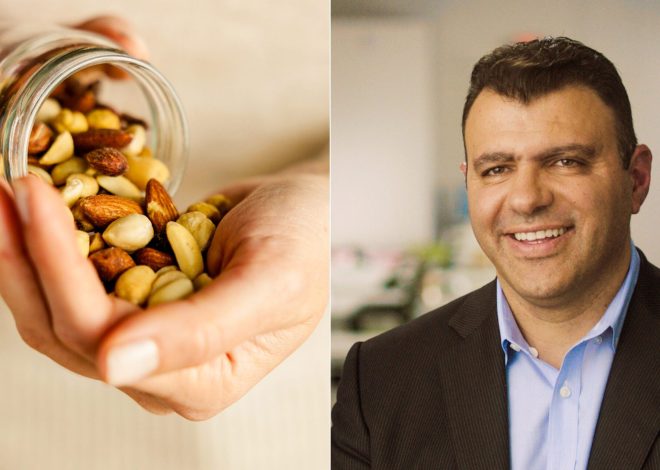
Healthy Eating: Why Nutrition Studies Are Complex
Nutritional studies are not subject to the same standards as medicine. Nevertheless, nutritional research is becoming a hard science.

Healthy, balanced diet Photo: Robert Schlossnickel/plainpicture
Intermittent fasting, green smoothies, oat cleanse – many people are interested in healthy food. According to a survey by the Techniker Krankenkasse from 2023, nine out of ten people find healthy food important or very important. But where do people get their nutritional information?
A quick survey among friends: “Do you eat according to the official recommendations?” Two answers: “No, they change all the time.” Or: “No, the scientists are all bought, I follow a great YouTuber.” 60 percent of people say they are unsure about healthy eating, according to the Nutrition Communication Handbook.
Even in science, nutritional science is sometimes ridiculed as an “approximate science” that does not provide definitive and unassailable results. The best-known critic is the statistics researcher John Ioannidis from Stanford University. For example, he looked through numerous food studies and came to the conclusion that actually all foods, even those that are generally considered healthy, such as vegetables, have studies that show them to be carcinogenic. Accordingly, every food is potentially carcinogenic. So is an entire branch of science failing here?
In fact, nutritional research is not entirely trivial. Unlike pharmaceutical studies, you cannot give one group of test subjects a pill with active ingredient and the other a placebo. Blinding is also hardly possible because the study participants can see whether there is meat on the plate or legumes. And you can’t expect anyone to go without sugar for years, for example, while you prescribe a sugar diet to the other group. So-called randomized controlled trials (RCTs), which are considered the medical gold standard, are therefore rare in nutritional science when it comes to “hard” endpoints such as type 2 diabetes, cardiovascular disease or cancer.
The observational study
There are many observational studies on this. This means that researchers, for example, look at the diets of a certain group and observe over the years whether and which ailments the participants develop. This study variant is considered less trustworthy compared to RCTs because it only discloses correlations and not cause-effect relationships. “However, many of these observational studies, whether from the USA or Europe, produce similar results, such as that sugary drinks increase the risk of obesity and diabetes,” says Matthias Schulze from the German Institute for Nutritional Research. “Observational studies have been underestimated so far,” says Benedikt Merz, scientist at the Max Rubner Institute (MRI).
Only recently was the starting signal for a large-scale new observational study, the Coplant study, in which the MRI, the Federal Institute for Risk Assessment (BfR) and various university partners are involved. Around 6,000 participants will be recruited and observed for around 20 years. “We want to close a research gap with the study, as we are also investigating modern vegetarian and vegan diets in various groups, such as pregnant women or children,” says MRI study leader Merz.
Previous studies date mainly from the 1990s and confirm that vegan and vegetarian people have a slimmer figure, lower blood lipid levels, less diabetes and cardiovascular diseases and, in some cases, less cancer. In contrast, according to these studies, vegans suffer more often from osteoporosis. However, the first generation of plant fans mainly ate legumes and tofu, i.e. little or no processed food.
Today, however, there are a variety of substitute products for animal foods – whether nuggets made from mushroom protein, sausage made from peas or lupine-based milk. “Although you can roughly draw conclusions about the health potential from the nutritional information, it is currently unclear whether the products, which are sometimes highly processed and often low in nutrients, pose a long-term risk of illness,” says Merz. For example, in its quality standards for meals in daycare centers, the German Nutrition Society (DGE) limits plant-based substitutes for meat and fish to a maximum of 4 portions per 20 meal days. “Even if the products are made from plants that are considered healthy, based on current knowledge, the products made from them cannot be completely recommended,” says Merz. “Our study is intended to provide clarity here.”
To ensure that the study delivers the best possible results, the Coplant scientists also rely on biomarkers in the blood or urine of the test subjects. This allows you to assess whether the food information is realistic. Salt intake can be calculated from the sodium excretion in the urine. The recording of nutrition, what and how much is eaten, has long been a point of criticism. After all, people like to cheat when it comes to sugar, high-fat foods or alcohol. A separate app was therefore developed for the Coplant study, which helps the test subjects record their meal plan down to the gram.
“Nutritional studies are continually being improved, and we are taking big steps in the right direction,” says Matthias Schulze from the German Institute for Nutritional Research (DlfE). It has long been standard practice to factor out confounding variables such as exercise or smoking status. “Today, many studies show that plant-based diets improve health, regardless of whether people smoke less or exercise more,” says Schulze.
New recommendations
In addition to the low level of knowledge regarding plant-based substitute products, social factors have also been largely ignored in nutritional science. Here too, the Coplant study aims to create knowledge. DIfE researcher Schulze names personalized nutrition as another important research field. “We suspect that foods have different effects from person to person depending on genetics, microbiome or metabolism, but we are far from being able to give corresponding recommendations.”
Jürgen Meerpohl, director of Cochrane Germany, a think tank that produces reviews on medical issues, sees particular methodological gaps in the area of large, carefully planned and conducted nutritional studies that, for example, examine the effects of milk and dairy products on health endpoints over many years. However, he also praises the fact that research methodology in the area of observational studies has developed further in recent decades. Systematic reviews and meta-analyses in the field of nutrition are increasingly being carried out, which take into account the entire evidence base on a question.
Such reviews are also the basis for formulating nutritional recommendations. The DGE only recently announced its new recommendations. Compared to before, there is a little less meat and milk here. In fact, official nutritional recommendations don’t change all the time. It has long been clear that more plant foods and less animal foods are healthier.
“Nutritional studies are continually improving”
How then does the impression of contradictory information arise? According to the authors of the Handbook for Nutrition Communication, food scandals and media scandals also created a feeling of uncertainty. “Only around 11 percent of media articles correspond to the actual evidence,” write the scientists. But self-proclaimed nutrition experts also earn money with their special diets on the book market or on social media and thus spread half-truths. And green smoothies or pseudo-fasting are of course “more sexy” than a handful of nuts every day, as recommended by the DGE.
In addition to the scientific evidence, recommendations are always based on cultural practices. And recently sustainability aspects have also been taken into account. Those who eat predominantly fruit and vegetables, whole grains, legumes, nuts and vegetable oils are not only protecting their health, but also the environment, according to the DGE. Anna Carolin Schäfer, who is a member of the DGE’s Science Department, emphasizes: “Recommendations do not lead to bans, but can provide guidance.”

Ethel Purdy – Medical Blogger & Pharmacist
Bridging the world of wellness and science, Ethel Purdy is a professional voice in healthcare with a passion for sharing knowledge. At 36, she stands at the confluence of medical expertise and the written word, holding a pharmacy degree acquired under the rigorous education systems of Germany and Estonia.
Her pursuit of medicine was fueled by a desire to understand the intricacies of human health and to contribute to the community’s understanding of it. Transitioning seamlessly into the realm of blogging, Ethel has found a platform to demystify complex medical concepts for the everyday reader.
Ethel’s commitment to the world of medicine extends beyond her professional life into a personal commitment to health and wellness. Her hobbies reflect this dedication, often involving research on the latest medical advances, participating in wellness communities, and exploring the vast and varied dimensions of health.
Join Ethel as she distills her pharmaceutical knowledge into accessible wisdom, fostering an environment where science meets lifestyle and everyone is invited to learn. Whether you’re looking for insights into the latest health trends or trustworthy medical advice, Ethel’s blog is your gateway to the nexus of healthcare and daily living.



